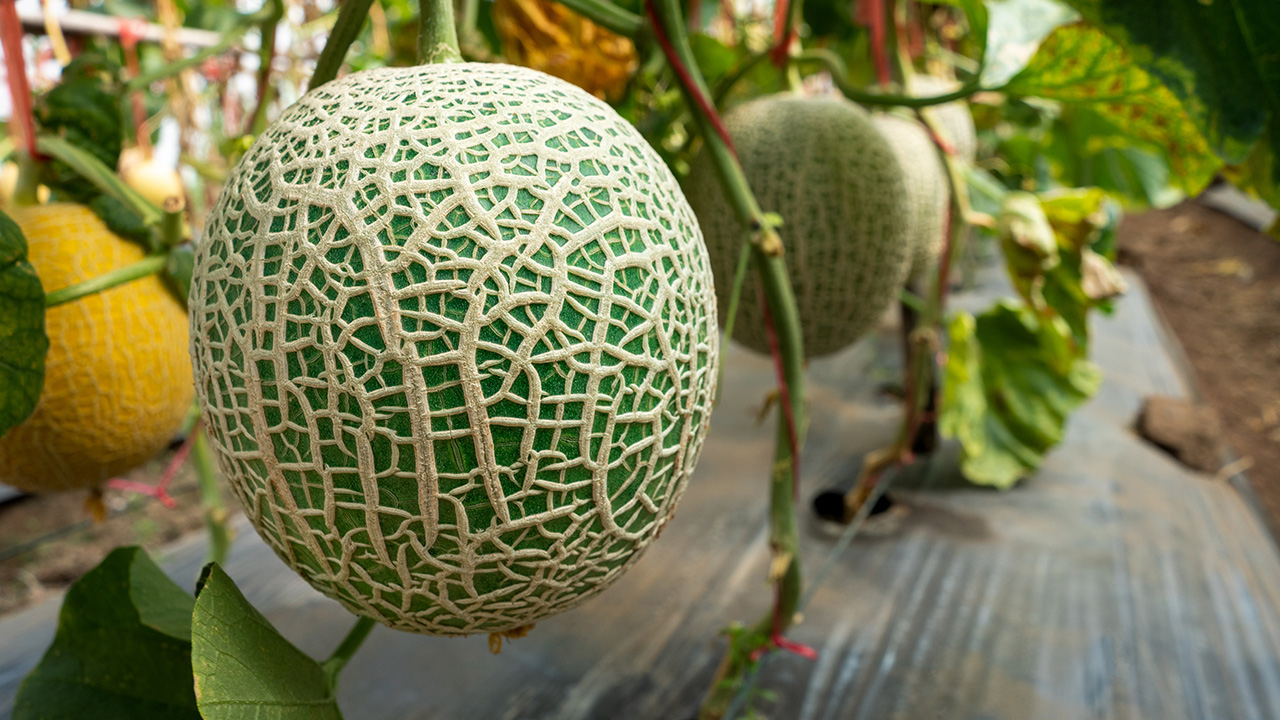Reflections on Young Life’s mini podcast, Words & Ways, Episode 19: Jesus and the Branches
I recently listened to Young Life’s Words & Ways podcast, in an episode on John 15 where Jesus describes himself as a vine and his followers as branches. While I was already very familiar with this passage, the podcast revealed an insight I had never considered: the Jewish people — including Jesus’ disciples — already carried the identity of being God’s vine, not branches.
Most years in my vegetable garden, I try to grow cantaloupe. While growing anything in my yard — grass, flowers, herbs — feels quite miraculous, there is something so magical to me about growing cantaloupes. One small seed grows into a cascading vine with tender branches, producing lovely flowers that ripen into flavorful fruit that I feel undeserving of. I hardly do anything but water it.
The people of Israel were described by poets and prophets as a vine planted by God — at times bearing good fruit, but eventually straying, producing bad fruit, and ultimately being destroyed. Jesus’ declaration of himself as the true vine was a bolder statement than I had realized. By identifying himself as the vine that Israel had failed to be, Jesus made a powerful claim — one that could easily have offended his disciples. They were failed vines; in actuality, they were branches.
The parable speaks to so many things about the Christian life, but what stands out so strongly to me are the “I am” and “you are” statements. This is a passage about who God is, who we are, and how we are to live into the people he created us to be.

Vine vs. Branch
Jesus says in verse 5 that apart from him, we can do nothing. Only the vine has power to do anything on its own.
Just like Israel, I once identified as a vine. I thought I could achieve things on my own. I had agency, independence, capability. Or I fooled myself into believing that I did.
When I think of times in my life where I did not walk closely with the Savior, I know I relied on my own strength. I looked to myself for peace, I tried to muscle my way into being a person whom others found acceptable, I tried to take my present and future circumstances into my own hands.
Like Israel, the fruit of my life was bitter. I was never meant to be a vine that’s self-sufficient, and I could never succeed at being one.
Jesus calls us branches. We were not created to produce on our own, but to abide in the true vine. Only then do our lives flourish, only then do we bear good fruit.
A branch apart from a vine is a dead, dry stick. As a first-time parent of a toddler, I often feel like that disconnected, withering branch. Try as I might to produce good fruit — to be patient with my son, gracious with my husband, kind to strangers, forgiving to my enemies — I just can’t. It may have been a long time coming, but I am so deeply aware of the fact that I can do nothing on my own.
Fruit as Purpose, Not Burden
I know this to be true, just as Jesus said; I am a branch, and I want his help so I can live fruitfully. It is such good news to me that my identity is not that of a failed vine, but of a branch with a place in him.
A branch that abides in the vine is not crushed by responsibility, but invited into purpose. Responsibility has always felt heavy to me, and it has multiplied a thousandfold since becoming a working mother. Many days, what I do feels ordinary and weighty rather than purposeful — and I long for something deeper.
But with Jesus, I am not responsible for creating my own fruit. My purpose is to bear it, and that happens as I remain in him.
When I think of abiding, I’m reminded of the story of Mary and Martha from Luke.
As Jesus and his disciples were on their way, he came to a village where a woman named Martha opened her home to him. She had a sister called Mary, who sat at the Lord’s feet listening to what he said. But Martha was distracted by all the preparations that had to be made. She came to him and asked, “Lord, don’t you care that my sister has left me to do the work by myself? Tell her to help me!”
“Martha, Martha,” the Lord answered, “you are worried and upset about many things, but few things are needed — or indeed only one. Mary has chosen what is better, and it will not be taken away from her.”
Luke 10:38-42
Martha despairs over what little she can accomplish on her own. She strives and exhausts herself, like a branch cut off from the vine. But Mary feels no responsibility; she knows what it means to abide. Mary sits at Jesus’ feet, listening. I love this illustration and I long to be like her.
How to Abide
So often when I read the Bible, I feel like Jesus isn’t answering the questions I’m asking. He tells us how to live and I want him to give me a step-by-step guide — but instead, he often moves on to another parable or teaching.
But here he tells us exactly how we should abide, even beyond the illustration of Mary and Martha in Luke.
After giving the disciples the vine and branches illustration, Jesus says, “As the Father has loved me, so have I loved you. Now remain in my love. If you keep my commands, you will remain in my love … My command is this: Love each other as I have loved you. Greater love has no one than this: to lay down one’s life for one’s friends” (John 15:9-10, 12-13).
How do we abide? We remain in his love.
To me, remaining in love means spending time with God. As my father-in-law likes to say, “Quality time is a factor of quantity time.” In most relationships, you can’t just jump straight into the deepest conversations, funniest moments, or wildest experiences. Those situations that we treasure in friendship happen after hours and hours spent with someone. Time together fosters deep relationships and real love.
This is how we see Mary abide. She is spending time intimately listening to Jesus teach.
Jesus shows us how to abide in the same way. He goes off to be alone with his Father many, many times to pray (Matthew 14:23, Mark 1:35, Luke 5:16, Luke 6:12, Matthew 26:36). We must spend time with our God, praying intimately, sincerely, and often.
How do we remain in his love? We keep his commands.
All of them? Really? Does the rich young ruler come to mind for anyone?
What are his commands? Love like he loves. Lay down your life.
Nothing major, super casual. While the step-by-step sounds simple, this feels impossible.
However, I know that whenever and wherever Jesus calls us, he meets us. He promises that if we abide in him, he will abide in us. That’s the only way we can keep his commands. It is through Jesus and his own perfect obedience that God can look upon me and say I’ve kept his commands (Romans 5:19).
And I’ve experienced this. In moments of my life where I’ve poured myself out for others, those are the moments I’ve felt his love most closely. Strangely enough, those times didn’t feel like striving at all — they felt like real life.
All I need to do is abide. If I abide, he who is faithful will remain in me, enabling me to bear fruit that glorifies the Father.
It is just like my cantaloupe vines. I hardly do anything but water them, yet they give back more fruit than I deserve. That is the wonder of abiding: staying connected, cultivating intimacy, and allowing the vine to do its work. The fruit isn’t mine — it belongs to the Gardener.







